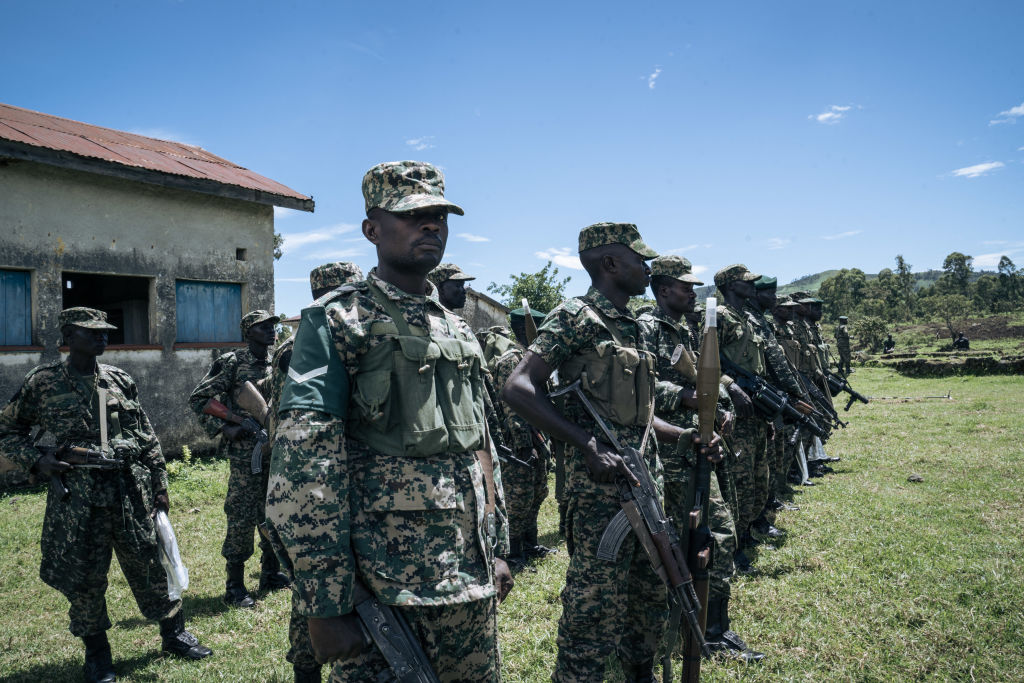ADF STAFF
The changing face of peacekeeping in Africa is on display in the Democratic Republic of the Congo (DRC), where a seemingly intractable conflict continues to rage in the eastern provinces.
The United Nations stabilization mission in the DRC, known as MONUSCO, is one of the U.N.’s largest, most expensive and longest-running missions. After years of frustration, the government requested that MONUSCO expedite its complete withdrawal this year instead of by the end of 2024.
With well-founded fears of a security vacuum, the DRC in 2022 called for the deployment of a multilateral force made up of troops from neighboring countries in the regional bloc it had recently joined, the Eastern African Community (EAC).
Kinshasa quickly grew dissatisfied with the EAC regional force when many of its troops refused to engage the M23 rebel group militarily.
“The EAC regional force must leave the DRC by December 8 because it has been unable to resolve problems, particularly that of the M23, which have been blocking the pre-cantonment process for two months,” Deputy Prime Minister Jean-Pierre Bemba said on October 9.
Next up is the Southern African Development Community (SADC), another regional bloc to which the DRC belongs. Although its deployment dates and details are unknown, it is expected to send its own regional force.
For decades Africa has seen dozens of peacekeeping efforts and multilateral alliances come and go, spurring a rigorous debate over the concepts of collective security and collective defense.
Collective security, embodied by the U.N., aims to prevent conflicts through cooperation and collective action. Collective defense, exemplified by several regional blocs on the continent, seeks to defend against an attack through military action.
Some experts have wondered whether this kind of regionalization of peacekeeping in Africa could mean the end of collective security.
Researchers Paul-Simon Handy and Félicité Djilo tackled the subject in a policy brief for the South Africa-based Institute for Security Studies (ISS). They noted an increase in peacekeeping operations in Africa involving troops from neighboring countries.
“While it is assumed that these countries have a better understanding of a crisis, their involvement often comes with challenges,” they wrote. “This breach of an unwritten rule of United Nations peacekeeping indicates a transformation of peace operations from instruments for collective security to vehicles for collective defense.
“While countries bordering a country in crisis have demonstrated greater responsiveness in terms of conflict resolution, their increased role could contribute to further divert peace support operations from their initial logic.”
In July, U.N. Secretary-General António Guterres released a policy brief called “A New Agenda for Peace,” which highlights his vision for the future of multilateralism.
Since he came into office in 2017, Guterres has bemoaned the “underutilization” of different tools referred to in the U.N. Charter, including “negotiation, enquiry, mediation, conciliation, arbitration, judicial settlement, resort to regional agencies or arrangements or other peaceful means.”
Another ISS researcher, Dawit Yohannes, notes that the African Union Peace and Security Council is an example of a collective security arrangement.
“But after 20 years, these efforts aren’t working well enough,” he wrote for ISS in August. “The AU admits that the dire situation calls for a new approach that aligns with the destabilizing factors now facing Africa.
“Many African states resist what they see as the AU or regional blocs interfering in their political or security matters.”
Handy and Djilo, looking at the reality of regional forces increasingly playing a role, seek to frame deployments with a double objective:
“On the one hand, to maintain the impartiality and neutrality of peacekeeping operations, notably in the eyes of populations but also of the parties to the conflicts; on the other, to ensure a relative balance in favor of the mission’s objectives rather than the neighboring country’s national interests.”
Yohannes asserts that the collective security approach should not be abandoned but studied to better understand its shortcomings.
“The continent needs a cooperative mechanism that addresses persistent insecurity and keeps up with shifting global politics,” he wrote.
“The AU and regional bodies should lead in convening a dialogue on Africa’s approach. Frank and open discussions are essential, including on the narrow interpretation of sovereignty and lack of priority given to conflict prevention.”

